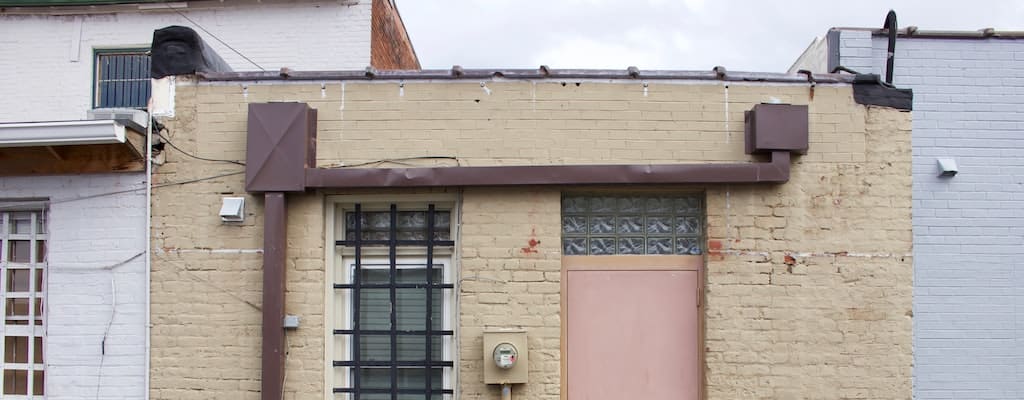slip through the cracks: Idiom Meaning and Origin
What does ‘slip through the cracks’ mean?
The idiom "slip through the cracks" means to be unnoticed or go unnoticed, often referring to a situation or person that is overlooked or neglected due to a lack of attention or proper consideration.

Idiom Explorer
The idiom "under the radar" means to go unnoticed or undetected, especially in a way that avoids attention, scrutiny, or surveillance.
The idiom "take the fall" means to accept blame or punishment for a mistake or wrongdoing, often to protect someone else or to avoid greater consequences.
The idiom "take one's eye off the ball" means to lose focus or become distracted from an important task or goal.
The idiom "take no notice of" means to ignore or pay no attention to something or someone. It implies a deliberate act of not acknowledging or responding to a particular situation, remark, or individual.
The idiom "take lightly" means to not take something seriously or to underestimate its importance or impact.
The idiom "take a gamble" means to take a risk or chance on something without being certain of the outcome.
The idiom "take a flyer" means to take a risk or gamble without considering the potential consequences or likelihood of success.
Take a flyer is an idiom that originated in the early 20th century. It is primarily used in American English and is commonly used in informal contexts. The idiom has a literal meaning as well as a figurative meaning, both of which will be explored in this analysis.
The idiom "swing through" means to visit a place or make a brief stop while traveling from one destination to another. It implies a casual or quick visit without spending much time or effort.
The idiom "sweep something under the rug" means to hide or ignore a problem or mistake instead of dealing with it openly.
The idiom "sweep aside" means to dismiss or ignore something or someone as unimportant or insignificant, usually due to a lack of interest or consideration.
Slipping Unseen
A common English idiom, "slip through the cracks," is used to describe a situation where something or someone goes unnoticed or is overlooked. It implies that an error, mistake, or failure is not detected or addressed due to a lack of attention or oversight.
The origin of this idiom can be traced back to the physical cracks found between the floorboards or tiles of buildings. These cracks can be small, narrow, and easily overlooked. In a literal sense, objects or substances, such as coins or liquids, can physically slip through these cracks and become lost or hidden from view.
Metaphorically, "slip through the cracks" began to be used in the figurative sense in the 19th century. It captures the idea of something or someone evading notice, escaping scrutiny, or falling outside the bounds of attention or responsibility. It suggests an unintended and undesired consequence of neglect or oversight.
This idiom is often used in situations where there are systems or processes in place to catch errors, inefficiencies, or problems, but some issues still manage to go unnoticed. For example, in a bureaucratic organization, a particular case or individual might "fall through the cracks" of the established procedures or policies, resulting in an unintended outcome.
Furthermore, this idiom can be used to highlight the failures or limitations of larger systems, whether social, legal, or administrative. It suggests that even the most careful or well-designed systems can have weaknesses or blind spots, allowing things to "fall between the cracks" and go unnoticed or unresolved.
Additionally, the idiom "slip through the cracks" also conveys a sense of frustration or disappointment when important matters "slip someone's mind" and are not given the attention they deserve. It implies that these overlooked or neglected matters can have significant consequences, often with the potential to cause harm or create gaps in knowledge.
The idiom can be used to describe situations where something or someone manages to "slip into" a particular state or condition without drawing attention. It suggests that these changes or transitions occur subtly or quietly, without being detected by those who should be monitoring or overseeing the situation.
Furthermore, the phrase "under the radar" is closely related to the idiom "slip through the cracks." It conveys a similar idea of going unnoticed or staying out of sight. It suggests that something or someone is operating or existing beneath the level of attention or awareness of others, whether intentionally or unintentionally.
While the idiom "slip through the cracks" is widely used and understood, it remains an ongoing reminder of the inherent limitations and imperfections of human systems, processes, and attention spans. It suggests that despite our efforts to be thorough and vigilant, some things will inevitably elude our notice or recognition, leaving room for further examination and improvement.
Example usage
Examples of how the idiom slip through the cracks can be used in a sentence:
- John's application for the job slipped through the cracks and was never considered.
- The company's quality control team failed to detect the defect, allowing the faulty product to slip through the cracks.
- The new policy was meant to address all possible loopholes, but some unforeseen scenarios still slipped through the cracks.
More "Neglect" idioms

